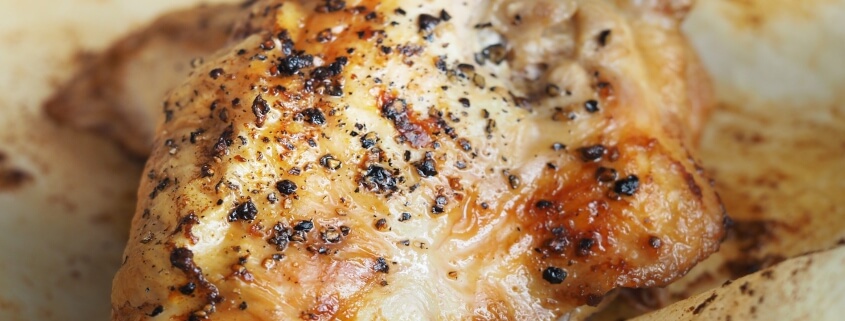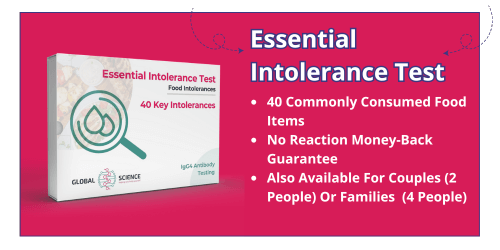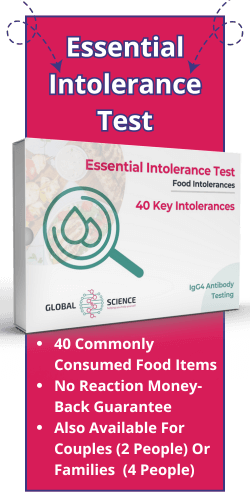Are you lactose intolerant? Did you know that you might not need to give up dairy yet? I know it sounds crazy, but there are scientific studies out there that are talking about how a particular milk protein could be the cause of your intolerance. On top of that, there is a company that is distributing a particular type of milk that can be the solution to your lactose intolerance! Again, all of this must sound crazy, especially when we were always taught that if you are lactose intolerant, you need to give up dairy.
Today we are here to shine some light on the argument and show you some more information about this hot topic. We know that all the cheese lovers out there are interested to learn more about that, especially if you been diagnosed with lactose intolerance. So, sit comfortably and let us explain to you how maybe you do not need to give up dairy yet if you are lactose intolerant.
One in five UK adults struggle with dairy (60-70% of world’s population reported to be lactose intolerant), and most of them are thinking that the cause of their symptoms is due to the intolerance of the sugar lactose. It is reported that only 5% of these cases are clinically diagnosed. All the cheese lovers are aware of the symptoms that we are talking about, such as bloating, abdominal pain and wind. In 2017 an article published in the Nutrition Journal(1) suggested that people with lactose intolerance could react to a particular protein found in cow’s milk called A1 Beta (β) casein.
This study looked at 600 adults who all claimed they had lactose intolerance, reporting gastrointestinal symptoms such as bloating, wind and diarrhoea, after drinking milk. It was shown that people who are drinking milk containing only the A2 β casein protein showed improved symptoms compared to those who consumed the regular milk containing both A1 and A2 β casein proteins. Previous scientific work has discussed the involvement of A1 β casein in diseases like Parkinson, Autisms and Diabetes(2), but at the moment, not enough scientific evidence can support these claims.
Cow’s milk containing only A2 β casein was brought to market by the A2 milk company and is sold mostly in Australia, New Zealand, China, the United States, and the United Kingdom(3) since 2000. Non-cow milk, including that of humans, sheep, goats, donkeys, yaks, camels, buffalo, and others, also contains mostly A2 β-casein, and so the term “A2 milk” is also used in that context(4).
SOME HISTORY….WHAT IS THE DIFFERENCE BETWEEN A1 AND A2 PROTEINS
The most common milk protein β-casein found in cow’s milk has two variants A1 and A2 protein. Scientists believe the difference originated as a mutation that occurred between 5000 and 10,000 years ago as cattle were being taken north into Europe. The only difference between the two proteins is the presence of a different amino acid in position 67: Histidine for A1 and Proline for A2 β casein. The mutation is subsequently spreading widely throughout herds in the Western world through breeding(2).The A2 cow breeds include Sahiwal, Gir, Red Sindhi, Tharpakar, Rathi, Kankrej, Ongole, Hariana and others. The milk delivered by all the desi cows is of the A2 variety. India went on to hybrid its native desi cows to increase the production of milk, with the European species of Jerseys and Holstein Friesian which delivered A1 milk.
IS A2 MILK SUITABLE FOR PEOPLE WITH LACTOSE INTOLERANCE?
In term of the quantity of lactose, we can find that both A2 and normal milk (A1, A2) have the same content of lactose; however, it is reported that most people found that having A2 milk is improving symptoms as bloating, and digestion issues. As we said, it could be possible that part of those people (70% worldwide) reported having lactose intolerance are experiencing more of a sensitivity and not an intolerance. In this case, the introduction of small doses of A2 milk in the diet with consequent increase could help you to tolerate milk. Did you know that people with lactose intolerance should be able to consume up to 12 grams of lactose at a time without any symptoms? So, you may be ok with smaller amounts of dairy and do not need to give up dairy yet!
Of course, everybody is different and not one solution fits all, so we want you to take this advice carefully, and if you want to give this, a try start with just a couple of teaspoons of A2 milk in your tea or coffee and see how your body is reacting. It’s a good try to increase the quantity slowly to understand your symptoms. As we reported here, there are other types of milk non-cow milk, including sheep, goats, donkeys, yaks, camels, buffalo, and others, also contain mostly A2 β-casein. Our advice is always to be careful and consult your GP or allergist if symptoms are not improving. We are here to help you collect all the information you may need to take your journey further to find a better version of yourself.
References:






